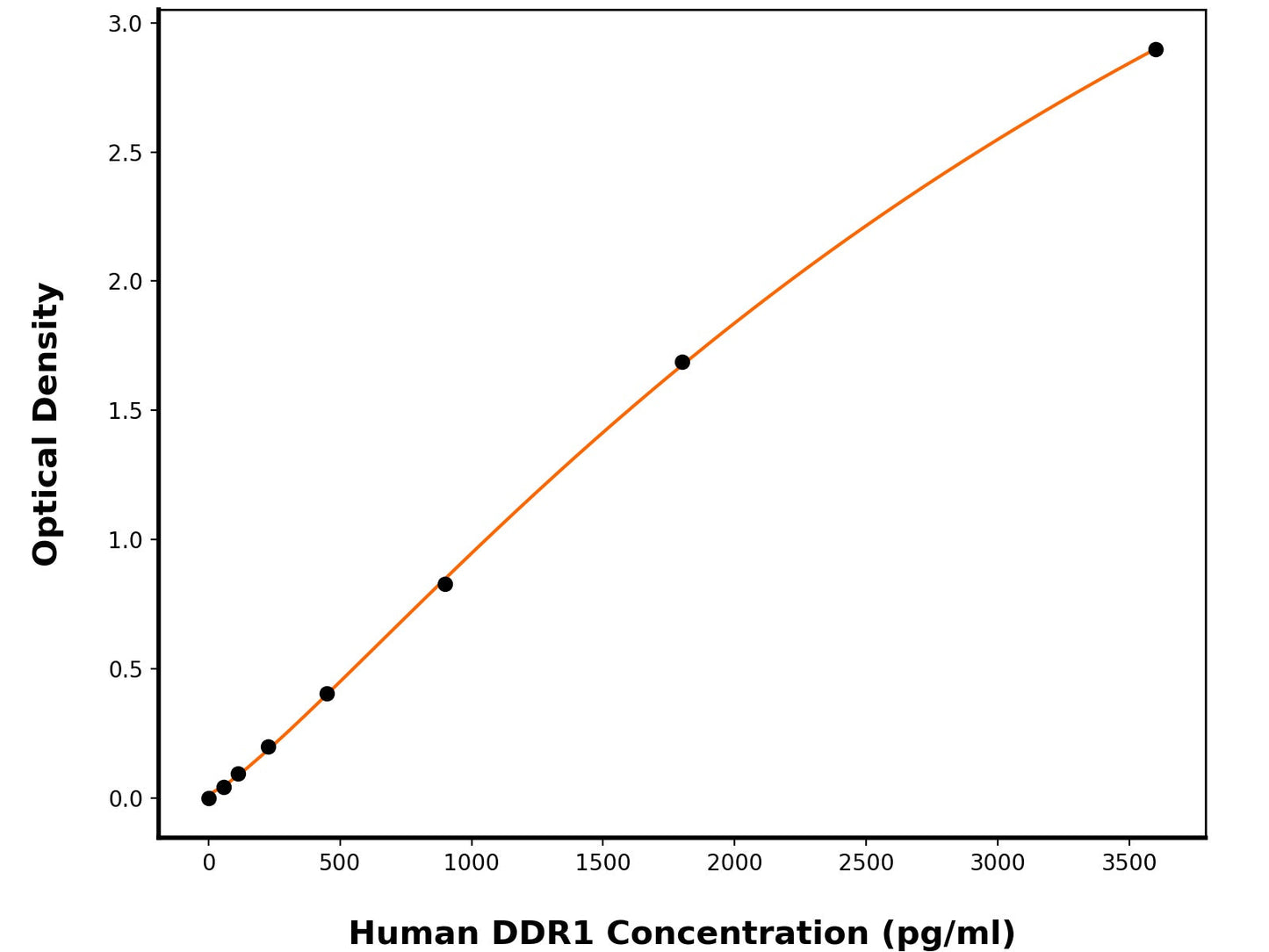1
/
of
1
Human Epithelial Discoidin Domain-Containing Receptor 1 (DDR1) ELISA Kit
Human Epithelial Discoidin Domain-Containing Receptor 1 (DDR1) ELISA Kit
This ELISA kit is designed to detect Human Epithelial Discoidin Domain-Containing Receptor 1 (Human DDR1). The assay plate has been pre-coated with mouse anti-Human DDR1 monoclonal antibody. When the sample containing DDR1 is added to the plate, it binds to the antibodies coated on the wells. Then, a horseradish peroxidase conjugated mouse anti-Human DDR1 Antibody is added to the wells and binds to DDR1 in the sample. After washing the wells, substrate solutions are added, and the color intensity is directly proportional to the amount of Human DDR1 present. The reaction is stopped by adding an acidic stop solution, and the absorbance is measured at 450 nm.
Catalog No:
BPE127
Regular price
$754.00 USD
Regular price
$580.00 USD
Sale price
$754.00 USD
Unit price
/
per
2 weeks
Couldn't load pickup availability
Product Details
Species Reactivity
Human
Sensitivity
16.94 pg/mL
Detection Range
56.25-3600 pg/mL
Sample Type
Serum, plasma, cell culture supernates
Incubation(s)
3.5 hour(s)
Research Areas
Cancer, Cardiovascular, Neuroscience
Background
Discoidin domain receptor family, member 1 (DDR1), also known as or CD167a (cluster of differentiation 167a), and Mammary carcinoma kinase 10 (MCK10), belongs to a subfamily of tyrosine kinase receptors with an extracellular domain homologous to Dictyostellium discoideum protein discoidin 1. Receptor tyrosine kinases play a key role in the communication of cells with their microenvironment. These kinases are involved in the regulation of cell growth, differentiation and metabolism. Expression of DDR1/MCK10/CD167 is restricted to epithelial cells, particularly in the kidney, lung, gastrointestinal tract, and brain. In addition, it has been shown to be significantly overexpressed in several human tumors. DDR1/MCK10/CD167 plays an important role in regulating attachment to collagen, chemotaxis, proliferation, and MMP production in smooth muscle cells. DDR1 functions in a feedforward loop to increase p53 levels and at least some of its effectors. Inhibition of DDR1 function resulted in strikingly increased apoptosis of wild-type p53-containing cells in response to genotoxic stress through a caspase-dependent pathway.
Shipping Condition
Shipped on cold gel packs.
Storage Condition and Shelf Life
This product can be stored at 2-8C.
Analyte
Epithelial discoidin domain-containing receptor 1
Regulatory Status
For Research Use Only

